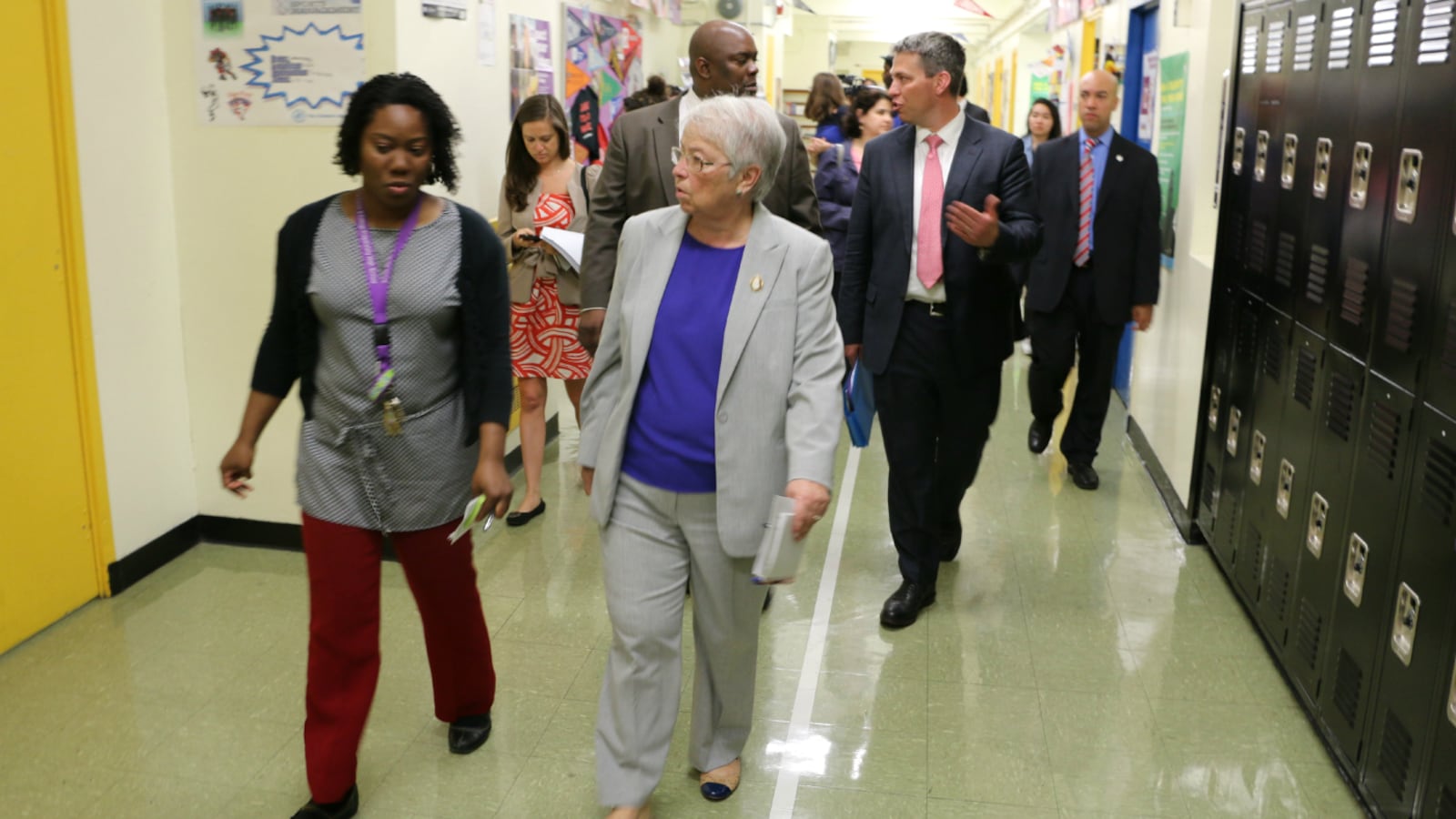New York City’s efforts to improve mental health services in schools will reach many more students by 2017, Mayor Bill de Blasio announced Monday.
De Blasio laid out a sweeping set of $850 million initiatives, including some designed to help students and improve their schools by extension. The plan, which builds on earlier efforts, includes hiring a new team of 100 health consultants designed to connect schools to education department resources and local partners, and a number of programs aimed at supporting the emotional development of preschool students.
“It means that if you’re at a school and you’re a principal or a teacher or a classroom aide and you see a child has a problem, we’ll send a mental health professional to that school to figure out with you a plan to help that child get well,” de Blasio said during an emotional press conference, where he detailed his father’s and daughter’s own mental health struggles.
De Blasio, aided by his wife, Chirlane McCray, has made mental health a focus of his mayoralty and repeatedly cited mental-health services as one way to improve struggling schools. Many low-performing schools in the city’s turnaround program, and another group the city has designated as “community schools,” have gained additional access to mental health workers. Some plan to open in-school clinics.
The announcement comes on the heels of a city report detailing the depth and breadth of mental illness in New York. Some of the paper’s most striking numbers were related to school-aged children, including that 8 percent of the city’s high school students report attempting to commit suicide and another 73,000 students said they feel sad or hopeless each month.
That report also notes the tight link between childhood mental illness and poverty. And in New York City’s public schools, where the Independent Budget Office estimates that eight in 10 qualify for free or reduced-price lunch, teachers and administrators can find themselves without the resources, staff, or knowledge to provide what students need.
The city’s plan promises to “act early” and help more students learn how to regulate their emotions and adapt to new situations as soon as pre-kindergarten. The city will training 9,000 new teachers, assistants, and school leaders over the next three years to make sure pre-K students are learning to control their emotions, expanding an effort announced earlier this month to introduce “social-emotional learning” to all classrooms by 2016.
Jennifer March, executive director of the advocacy organization Citizens’ Committee for Children, said the effort is a warranted addition of resources.
“We know from our experience that there’s a gap between supply and demand for children’s mental health services generally,” she said, “and that historically there’s been not a lot of resources committed to really young children.”
The 100 “school mental health consultants” the city will hire will be tasked with assessing schools’ needs and and connecting them to appropriate education department resources. This new team of counselors and social workers will also implement new programs in schools, according to the plan.
Another 52 schools will assess mental health service needs starting in 2017, according to the report. These services will be modeled after those now available to “community schools,” a group the city expects to grow in number by 2017.
Additionally, the plan also calls for more training of middle and high school staff to help them identify and offer assistance for children with mental illnesses.
Dr. Jeffrey Borenstein, president and CEO of the Brain & Behavior Research Foundation, said that since teachers interact with students on a daily basis, it is crucial they are able to identify and find help for students.
“It’s important to reach people where they are,” Borenstein said. “So having in the school, a professional who can really do an intervention and help the student and the student’s family, is the best way.”

